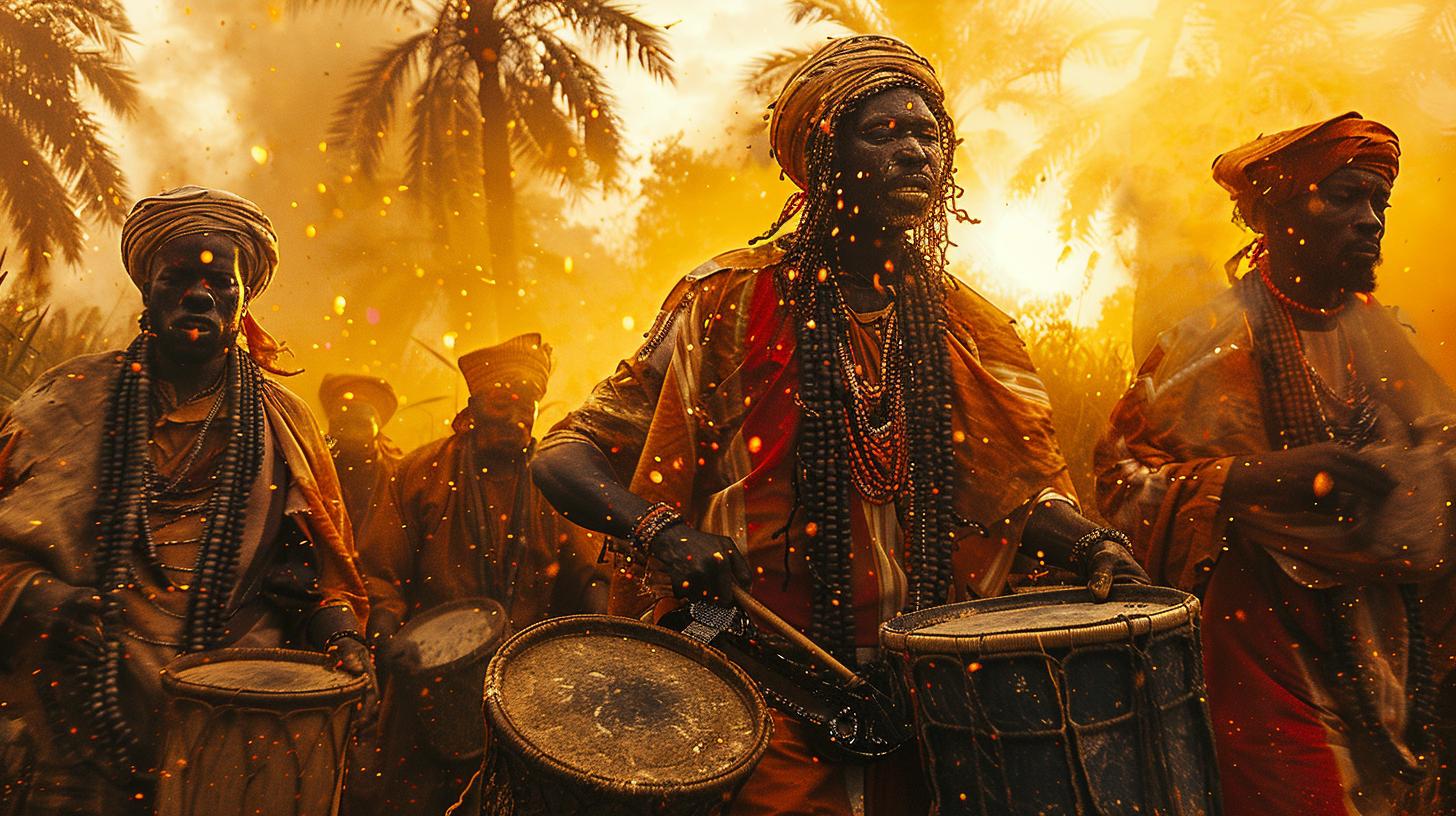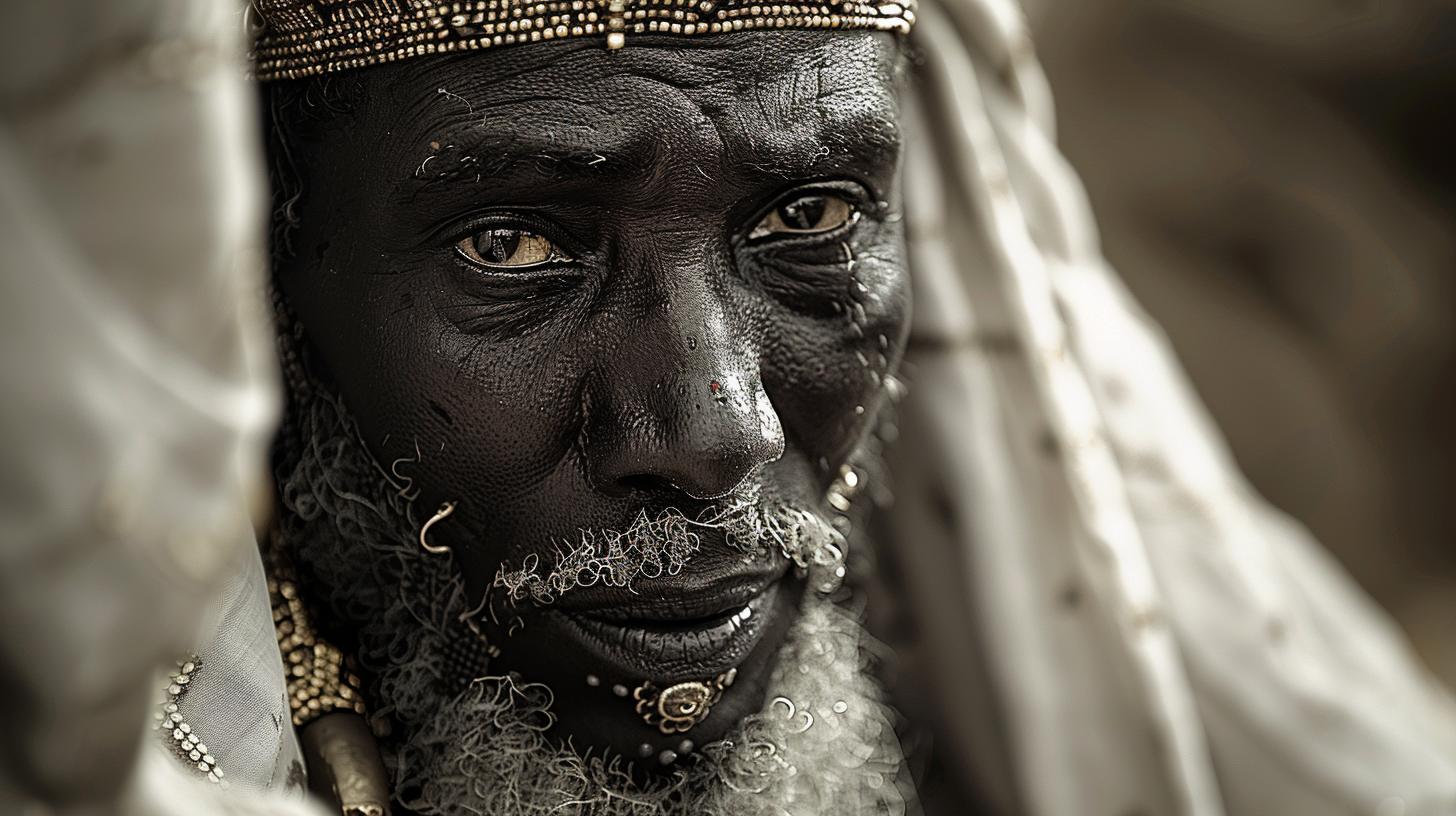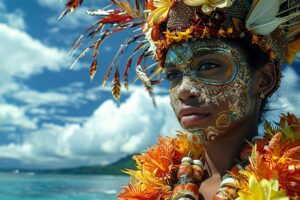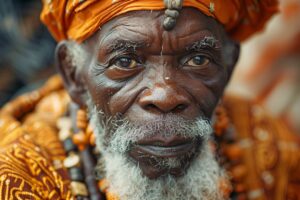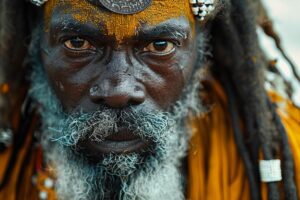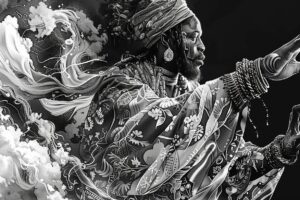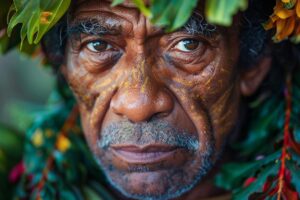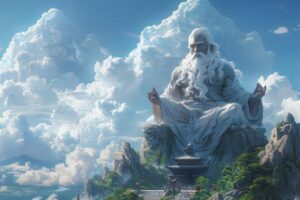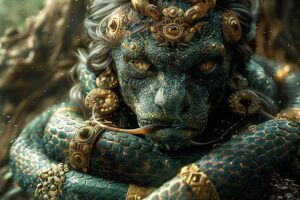Hausa Mythology: History and Beliefs of the Largest Ethnic Group in Sub-Saharan Africa
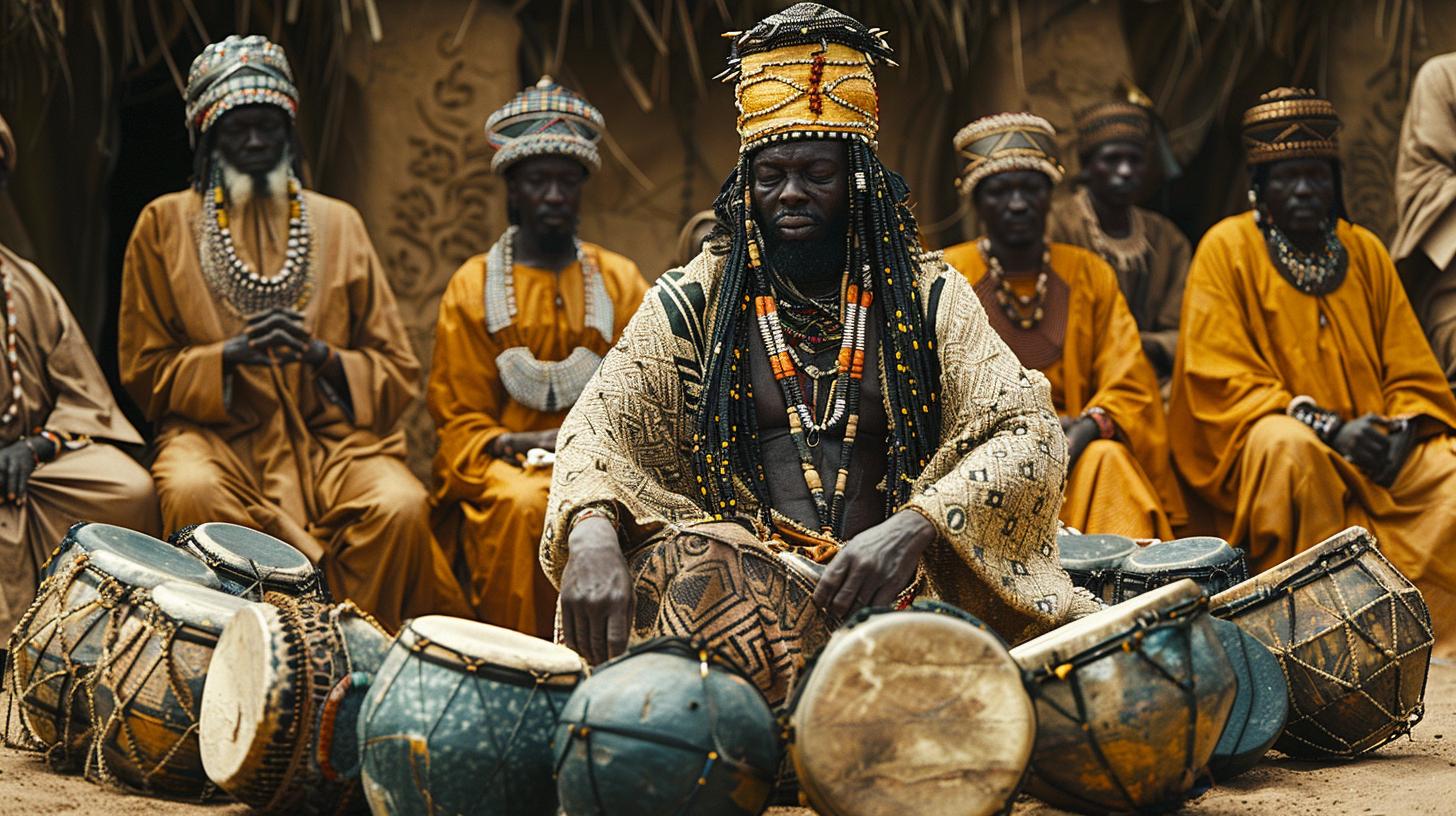
The article provides an overview of Hausa Mythology, exploring deities of winds, mythical figures, and the transition to Islam. It delves into the Bori tradition, ancestral spirits, and the significance of water in Hausa beliefs.
Historical Background of the Hausa People
The historical background of the Hausa people delves into their origins, migration patterns, feudal organization of city-states, and the profound influence of Islam on their culture.
Origins and Migration Patterns
- The Hausa people trace their origins back to ancient times, believed to have migrated from various regions to settle in the areas of what is now Northern Nigeria and Southern Niger.
- Migration patterns among the Hausa were influenced by factors such as trade routes, environmental conditions, and interactions with neighboring ethnic groups.
Feudal Organization of the Hausa City-States
- The Hausa city-states were characterized by a feudal system, with each state governed by a traditional ruler known as a Sarkin.
- City-states like Kano, Katsina, and Zazzau flourished under this feudal organization, with distinct social structures and hierarchical systems in place.
Influence of Islam on Hausa Culture
- The advent of Islam had a profound impact on Hausa culture, particularly in the areas of religious beliefs, social practices, and political structures.
- Islamic teachings and practices gradually replaced traditional Hausa animistic beliefs, leading to the establishment of mosques, Quranic schools, and a new legal system based on Sharia law.
Hausa Mythology: An Overview
The rich tapestry of Hausa Mythology offers a fascinating glimpse into the spiritual beliefs and folklore of this vibrant culture.
The Isoki – Deities of Winds
Within Hausa Mythology, the Isoki are revered as powerful entities representing the forces of wind and air, influencing both the natural world and human affairs.
City of Jangare and Its Mythical Realm
The mystical city of Jangare stands as a testament to Hausa mythology, a realm governed by Sarki Aljan and intricately divided into twelve houses, each with its unique functions and spiritual leaders.
Tropes and Figures in Hausa Mythology
- Sarkin Arna, an enigmatic figure associated with alcoholism and its transformative effects on individuals within Hausa folklore.
- Dodo, the weather deity whose character evolved into a demon or witch in later tales, symbolizing the complex relationship between nature and the supernatural realm.
Transition from Traditional Religion to Islam
The transition from traditional religion to Islam among the Hausa people was a complex process marked by significant historical events.
The influence of the Fulani Jihadists played a crucial role in reshaping Hausa culture and religious practices.
Impact of Fulani Jihadists
The Fulani Jihadists, led by influential leaders such as Usman dan Fodio, launched a series of holy wars in the late 18th and early 19th centuries, aiming to establish an Islamic caliphate in the region.
Their conquests had a profound impact on the Hausa city-states, leading to the gradual spread of Islamic beliefs and practices.
Significance of Jihadist Conquests
- Establishment of Islamic rule in Hausa territories
- Imposition of Sharia law and Islamic governance structures
- Influence on Hausa cultural and religious traditions
Syncretism of Bori Animism and Islamic Beliefs
Despite the spread of Islam, elements of traditional Hausa beliefs, particularly the Bori animistic tradition, continued to persist alongside Islamic practices.
This syncretism resulted in a unique blend of spiritual beliefs and practices within Hausa communities.
Harmonization of Bori and Islamic Rituals
- Parallel observance of Bori ceremonies and Islamic prayers
- Incorporation of Bori symbols and rituals into Islamic contexts
- Tension and coexistence between Bori and Islamic communities
Bori: The Hausa Tradition of Animism
Bori is a significant tradition within Hausa mythology, characterized by its blend of magic and spiritual possessions.
This form of animism holds deep-rooted beliefs and practices that have persisted through generations.
Practices and Beliefs in the Bori Cult
- The Bori cult encompasses rituals and ceremonies that channel spiritual energy and connect practitioners with supernatural forces.
- Participants engage in trance-like states to communicate with spirits and seek guidance for various aspects of life.
- Bori rituals often involve dances, music, and offerings to honor ancestral spirits and appease the spiritual realm.
Persistence of Bori Practices in Modern Hausa Communities
Despite the spread of Islam and changes in societal dynamics, Bori practices continue to endure in modern Hausa communities, showcasing the resilience and cultural significance of this animistic tradition.
Individuals in these communities maintain a strong connection to their spiritual heritage through the preservation of Bori rituals and ceremonies.
Sarkin Arna: The Alcoholic Figure in Hausa Mythology
Transformation of Sarkin Arna in Folklore
In Hausa mythology, Sarkin Arna is depicted as a complex figure whose portrayal has evolved throughout folklore. Initially seen as a powerful deity, he gradually transformed into a more negative character associated with the harmful effects of alcohol consumption.
Mythological Significance of Alcoholism in Hausa Culture
Alcoholism plays a vital role in Hausa culture, symbolizing a moral lesson within the mythological context. The inclusion of Sarkin Arna as an alcoholic figure reflects the Hausa people’s understanding of the consequences of excessive drinking and the impact it can have on individuals and society.
Dodo: The Weather Deity Turned Demon
Dodo, a prominent figure in Hausa folklore, is known as the Weather Deity who underwent a transformation into a malevolent force. This deity’s evolution in stories reflects a complex interplay of nature and supernatural forces.
Evolution of Dodo’s Character in Hausa Folktales
In Hausa folktales, Dodo was initially revered as the god of weather, controlling the elements with benevolence. However, over time, Dodo’s character underwent a significant shift towards malevolence and demonic qualities.
Interpretations of Dodo in Relation to Nature and Supernatural Forces
Interpretations of Dodo’s transformation vary, with some seeing it as a cautionary tale about the dangers of disrespecting nature’s balance. Others view Dodo’s descent into darkness as a reflection of the precarious relationship between humanity and the supernatural realm.
The Role of Ancestral Spirits in Hausa Mythology
Ancestral spirits play a significant role in Hausa Mythology, serving as guardians and influencers within the spiritual realm. These spirits are believed to have a direct connection with the living and are revered for their wisdom and guidance.
Ancestral Spirits as Guardians and Influencers
- Ancestral spirits are considered protectors of the Hausa people, watching over them and providing spiritual guidance in times of need.
- These spirits are believed to have the power to influence events in the physical world, acting as intermediaries between the living and the divine.
- Hausa individuals often seek the blessings and protection of their ancestors through prayers, rituals, and offerings.
Rituals and Offerings to Honor Ancestral Spirits
- Rituals to honor ancestral spirits typically involve the preparation of special foods, drinks, or symbolic items to be offered at sacred sites or ancestral shrines.
- These offerings are made as a sign of respect and gratitude for the guidance and protection provided by the ancestors.
- Hausa communities come together to perform elaborate ceremonies that celebrate the presence and influence of ancestral spirits in their daily lives.
Significance of Water in Hausa Mythology
Symbolism of Water in Creation Myths
Water holds a profound symbolic significance in Hausa mythology, often representing life, purity, and creation.
In Hausa creation myths, water is portrayed as the primordial element from which all life sprang. It symbolizes the source of existence and the vital force that sustains all living beings.
The Primordial Ocean
In Hausa mythology, the universe is believed to have originated from a vast primordial ocean, symbolizing the infinite potentiality and fertility of water. This cosmic ocean represents the ultimate source of life and abundance, serving as the wellspring of creation and renewal.
Ritual Purification
Water plays a crucial role in rituals and ceremonies within Hausa culture, serving as a means of purification and spiritual cleansing. The act of washing with water is believed to not only cleanse the body but also purify the soul, allowing individuals to rid themselves of impurities and negative influences.
Ritual Practices Involving Water in Hausa Culture
Water holds a central place in various ritual practices and traditions of the Hausa people, encompassing both symbolic and practical significance. From birth ceremonies to funerary rites, water is intricately woven into the fabric of Hausa cultural practices, reflecting its profound spiritual and cultural importance.
Bathing Rituals
Bathing rituals are integral to Hausa culture, with water being used not only for physical cleansing but also for spiritual purification. It is believed that through the act of bathing, individuals can cleanse themselves of negative energies and prepare themselves for important life events or rites of passage.
Water Offerings
Water offerings are made in various ceremonial contexts to appease ancestral spirits and seek their blessings and protection. Water is seen as a sacred offering that symbolizes reverence and gratitude towards the ancestral spirits, fostering a deep connection between the living and the spiritual realms.
Hausa Mythology in Contemporary Context
Hausa Mythology continues to be a significant aspect of cultural identity for the modern Hausa communities. In the current context, efforts are being made to preserve and revive traditional Hausa mythological traditions, while also adapting to the influences of globalization.
Preservation and Revival Efforts of Hausa Mythological Traditions
- Community-led initiatives focus on documenting oral traditions and legends.
- Local schools incorporate Hausa mythology into educational curricula.
- Artists and performers draw inspiration from Hausa myths in contemporary works.
Influence of Globalization on Hausa Mythology Interpretation
Globalization has brought both challenges and opportunities for the interpretation of Hausa mythology.
- Increased access to digital platforms has facilitated the sharing of Hausa myths with a global audience.
- Western influences have led to reinterpretations and modern adaptations of traditional Hausa myths.
- Migration and diaspora communities contribute to the spread and evolution of Hausa mythological narratives.
.

